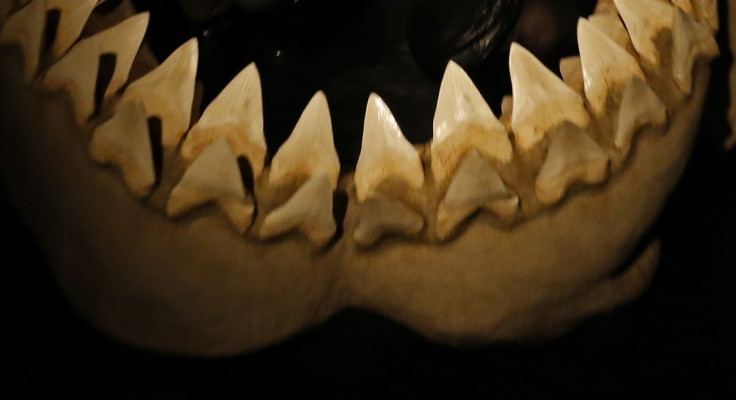Seven-year-old discovers prehistoric tooth belonging to the largest shark that ever lived
Young boy finds tooth from 60ft megalodon shark while on beach holiday with family.

A seven-year-old boy has stumbled across a tooth that belonged to the largest shark ever to exist while on holiday with his family in South Carolina.
Foster Frazier was vacationing with his family in North Myrtle Beach when he found the five-inch megalodon shark tooth. The now extinct megalodon shark could grow up to 60ft and first lived in the oceans more than 23 million years ago.
Foster's family described how they were "speechless" at the boy's discovery. His mother Tina Frazier told Myrtle Beach Online: "We didn't pay much attention because we were downstream a bit and it looked like [Foster] was just holding a large sand covered rock, however, as he reached down to wash it off we realised he'd definitely found a treasure.
"He was knocking sand off the sides of the stream when he said it was sticking out of the side of the bank. To say he was excited is an understatement."
It is difficult to estimate just how old the tooth is because "you would need to know the age of the deposit in which the tooth was found in" according to Daniel Abel, a marine science professor at Coastal Carolina University.
In the case of Foster's megalodon tooth, you would have to know how old the sand which covered it in order to determine how old it is.
Frazier added: "Foster has always loved sharks, every book he reads is about sharks, every shirt he wears has a shark in it, and he has always told us he was going to find a megalodon tooth one day.
"We have always told him that he'd have to get older and scuba dive to find a tooth like that, however, he said God would help him know where to look and he must have been right."
The megalodon could grow up to three times the size of present-day great white sharks. They became extinct around two to three million years ago at the end of the Pliocene era, which saw the oceans begin to cool as well as fluctuations in sea levels.
Catalina Pimiento, from the Paleontological Institute and Museum of the University of Zurich, previously told IBTimes UK: "The extinction of many marine species happened over time, and we propose that an important factor was the fluctuation in sea levels which caused a loss of coastal habitats, where charismatic species like megalodon got their food."
Megalodon Tooth compared to two Great White Shark Teeth pic.twitter.com/fORWckQgPa
— ✨CuteSharksBot✨ (@CuteSharksBot) July 23, 2017
© Copyright IBTimes 2025. All rights reserved.






















